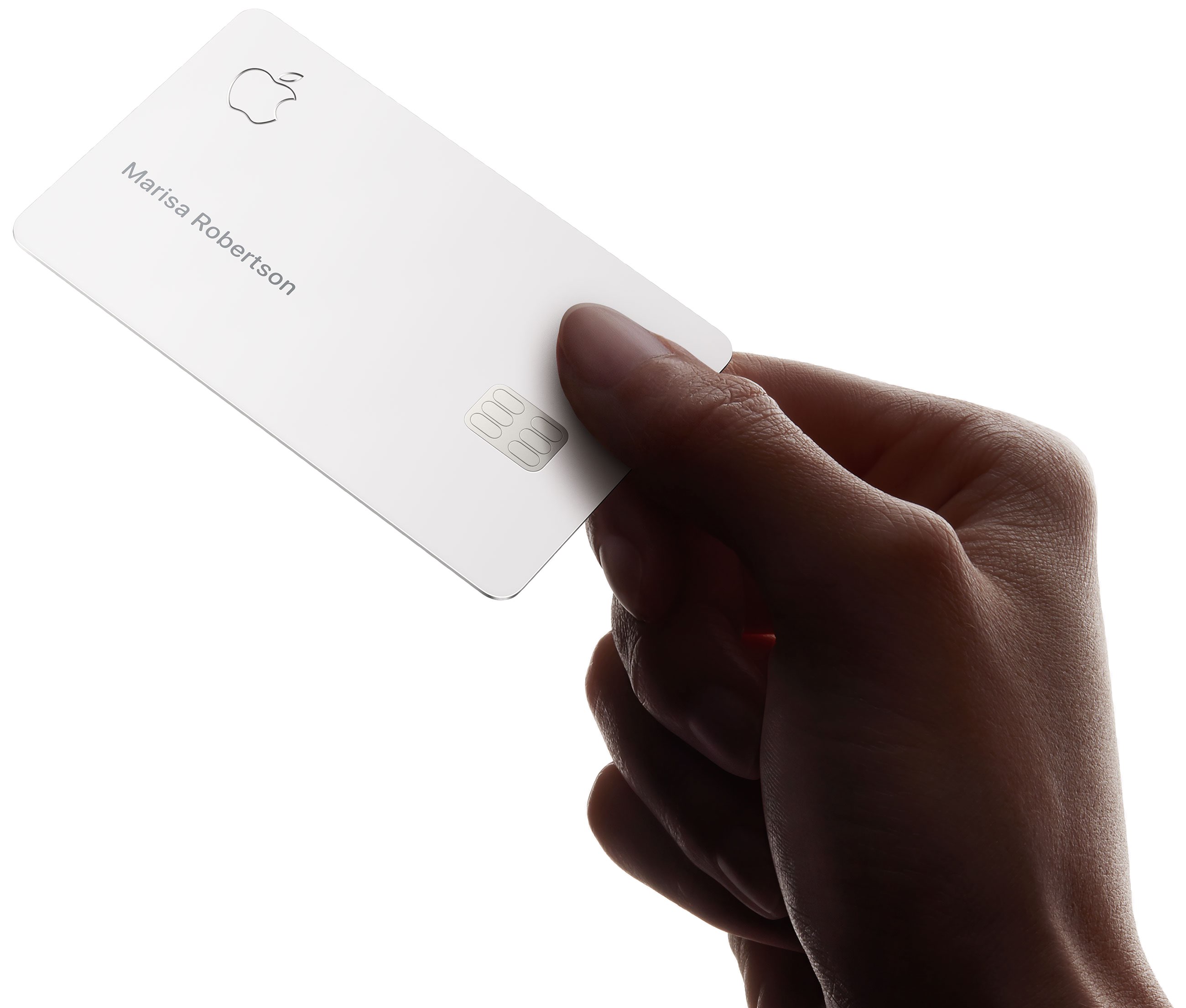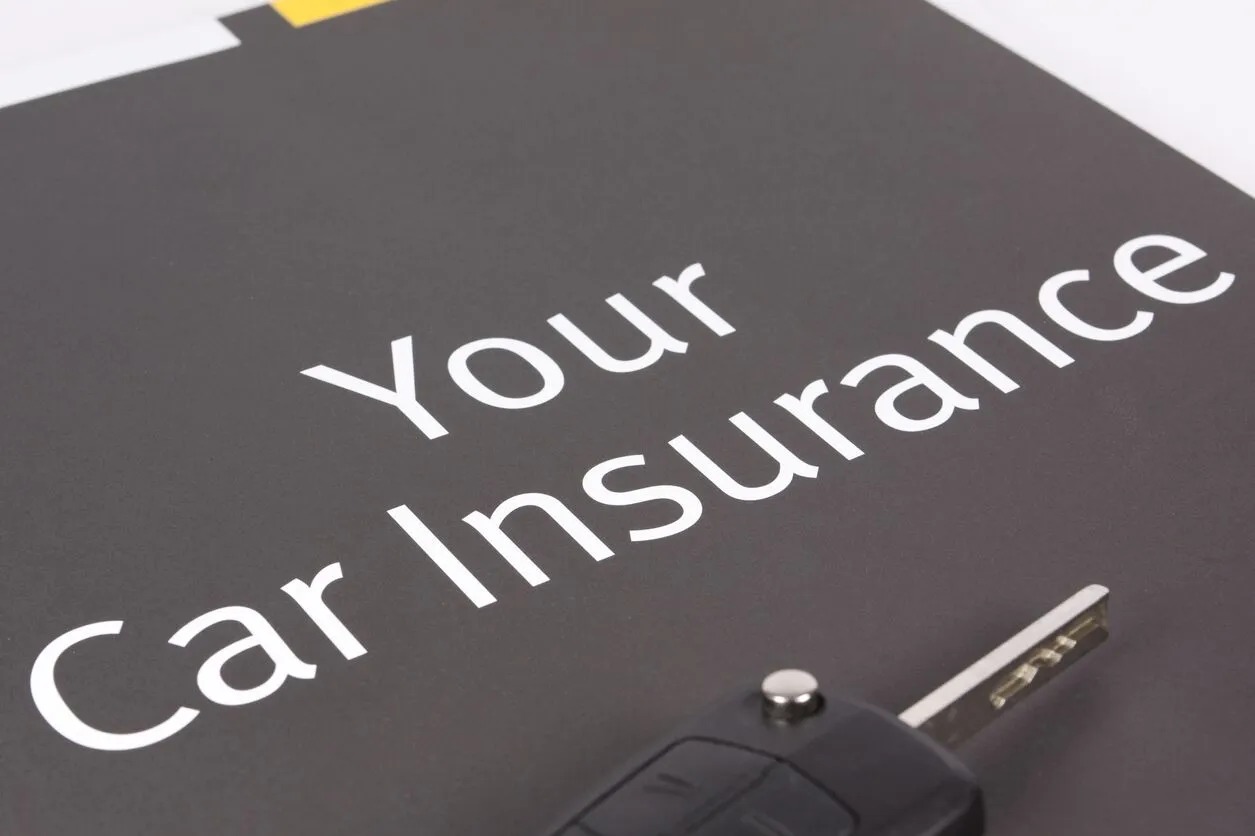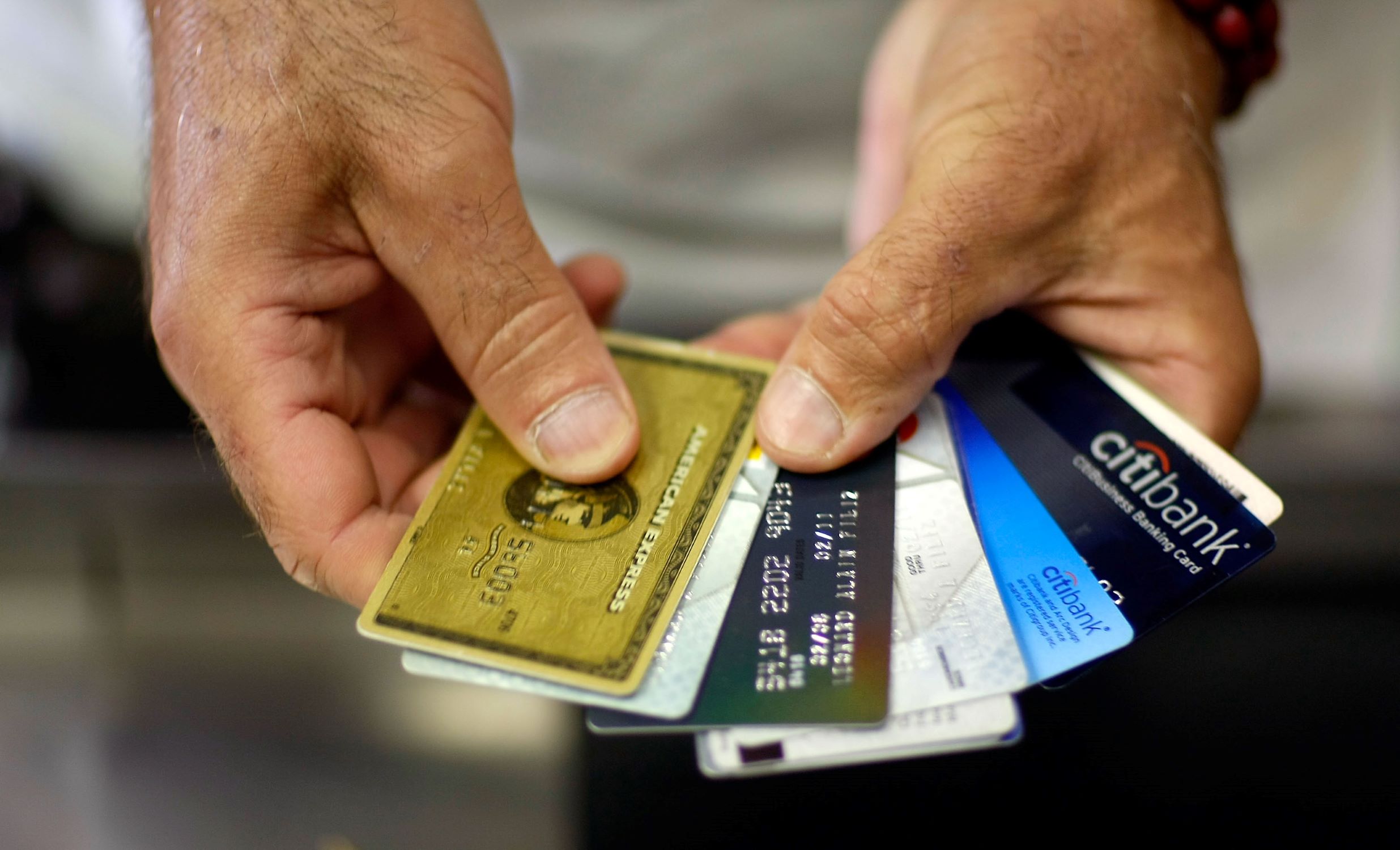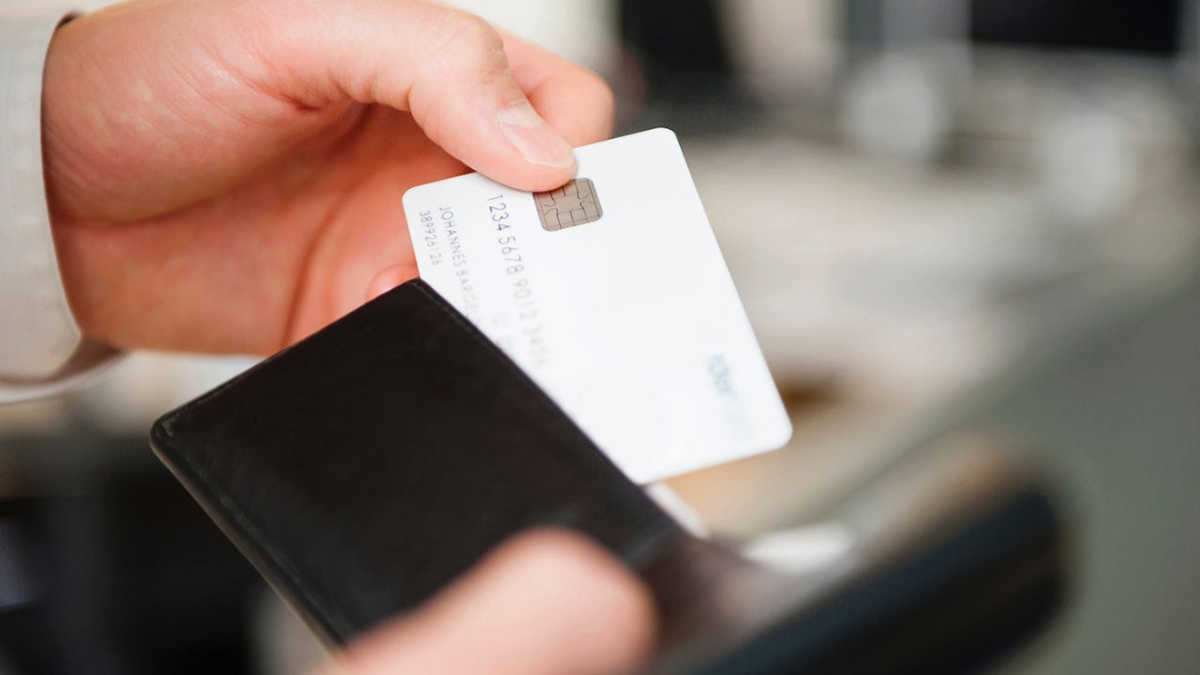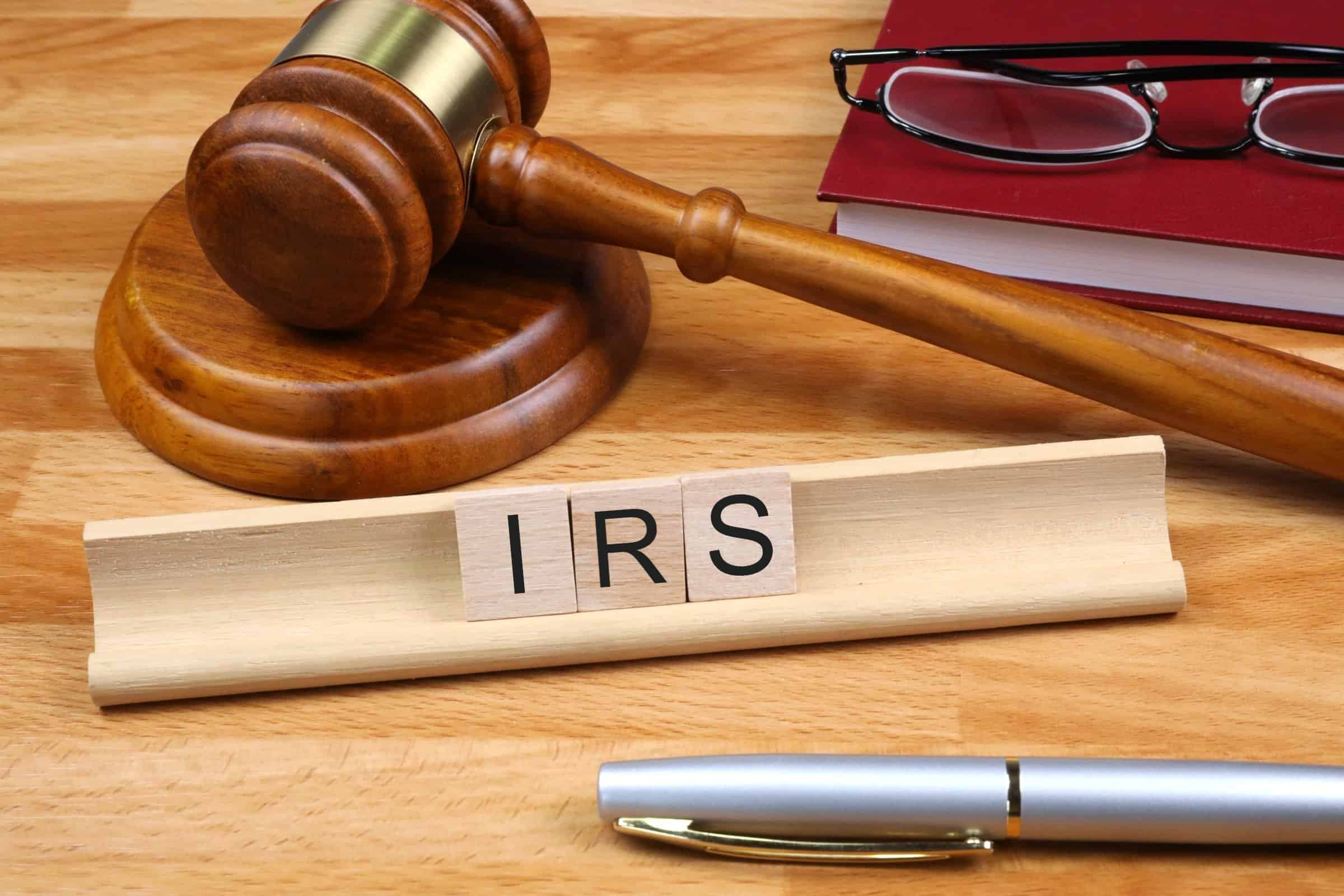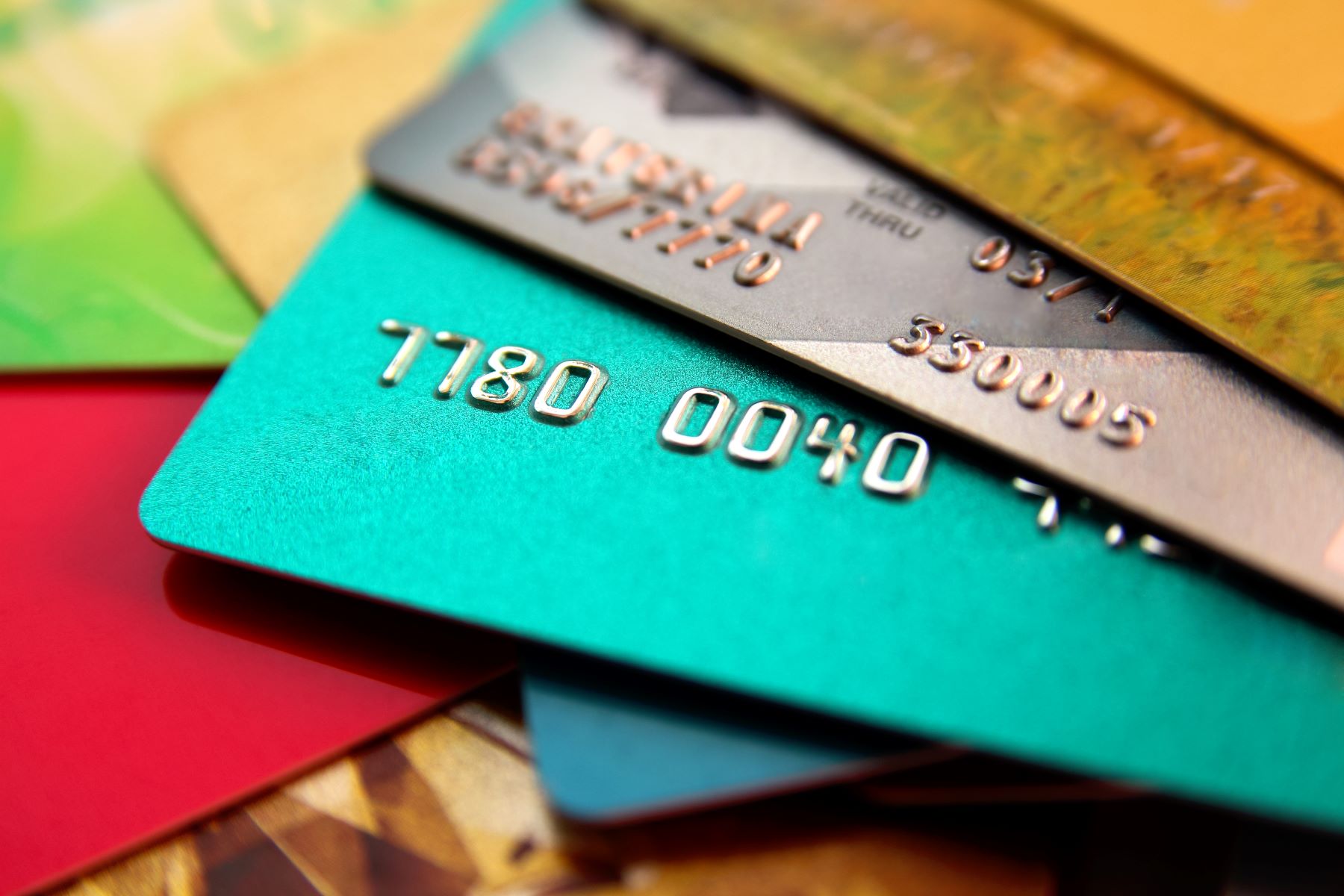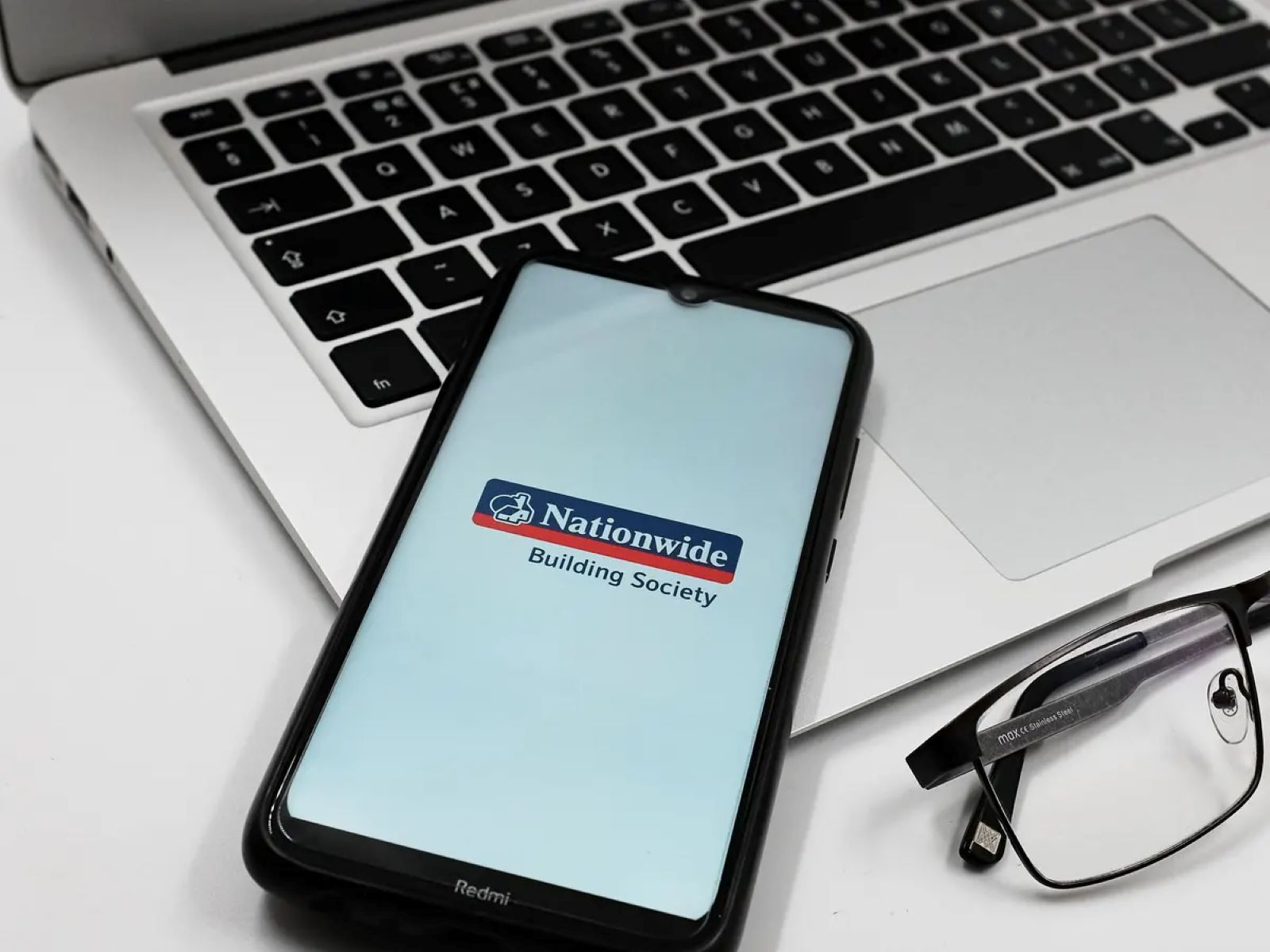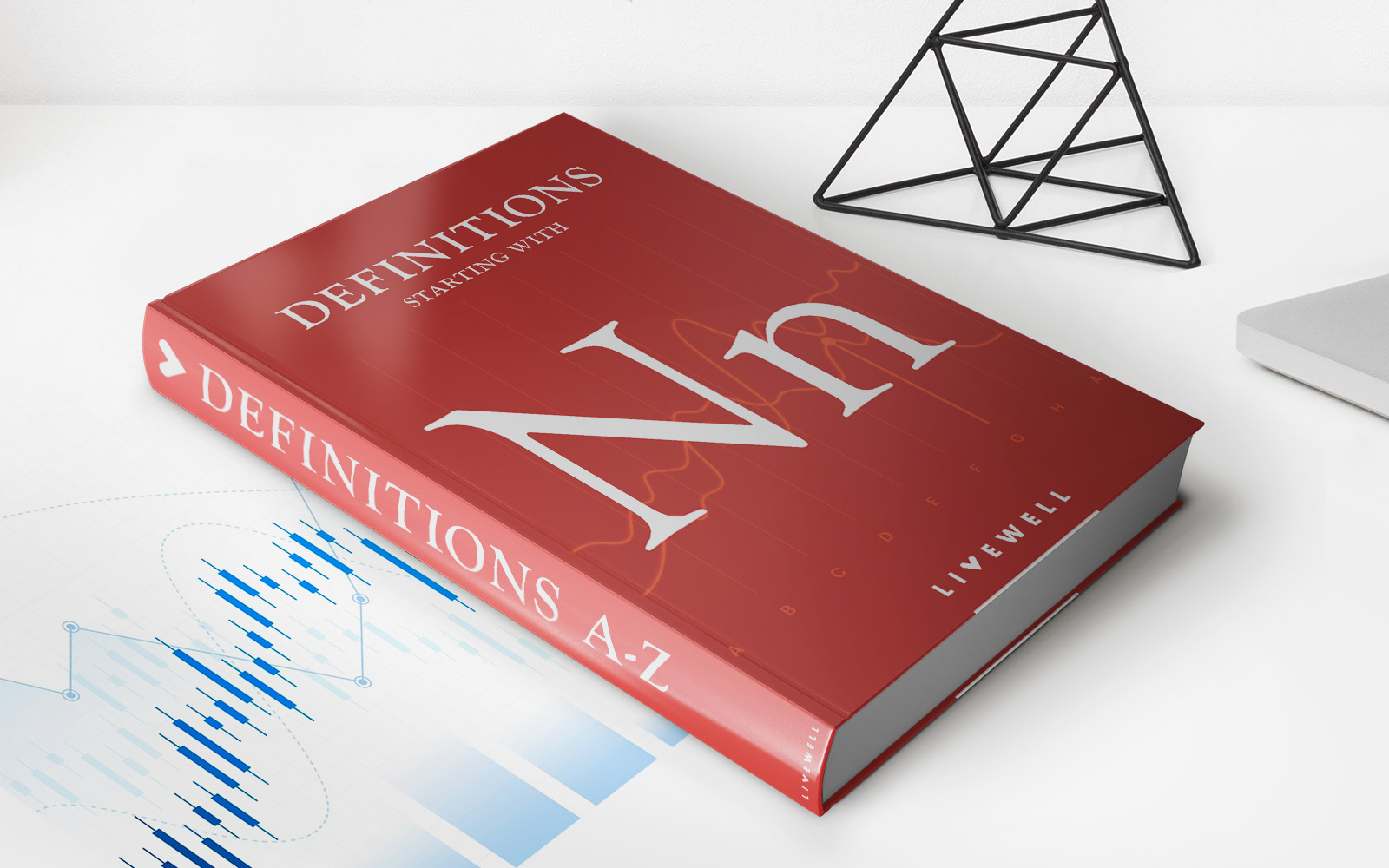Home>Finance>How To Find Out If Someone Opened A Credit Card In Your Name


Finance
How To Find Out If Someone Opened A Credit Card In Your Name
Published: November 6, 2023
Learn how to protect your finances and identity by discovering if someone has opened a credit card in your name.
(Many of the links in this article redirect to a specific reviewed product. Your purchase of these products through affiliate links helps to generate commission for LiveWell, at no extra cost. Learn more)
Table of Contents
Introduction
Identity theft is a growing concern in our increasingly digital world. One of the most common forms of identity theft is someone opening a credit card in your name without your knowledge or consent. Not only can this lead to financial loss and damaged credit, but it can also disrupt your life in numerous ways.
Fortunately, there are steps you can take to find out if someone has opened a credit card in your name. In this article, we will guide you through the process of identifying potential credit card fraud and what actions you can take to protect yourself.
It’s important to note that detecting unauthorized credit card activity requires vigilance and attention to detail. By taking proactive measures to monitor your credit and financial accounts, you can catch any fraudulent activity early on and limit the damage it can cause.
In the following sections, we will outline the steps you can take to determine if someone has opened a credit card in your name. From reviewing your credit reports to monitoring your mail and utilizing credit monitoring services, these measures will help you stay informed and in control of your financial well-being.
Steps to Determine if Someone Opened a Credit Card in Your Name
Discovering if someone has opened a credit card in your name requires a systematic approach. By following the steps below, you can effectively investigate the possibility of unauthorized credit card activity and take appropriate action:
- Review Your Credit Reports:
- Look for Unauthorized Inquiries:
- Check for New Accounts:
- Examine Statement and Billing Information:
- Monitor Your Mail and Email:
- Utilize Credit Monitoring Services:
- Report Suspected Identity Theft:
The first step in detecting possible credit card fraud is to obtain copies of your credit reports from the three major credit bureaus: Experian, Equifax, and TransUnion. Review the reports thoroughly, paying close attention to any unfamiliar accounts, inquiries, or discrepancies.
Check your credit reports for any unauthorized credit inquiries. These inquiries occur when a creditor requests your credit report in response to a credit card application. If you notice any inquiries that you did not initiate, it may indicate that someone is trying to open a credit card in your name.
Examine your credit reports for any newly opened accounts that you are not aware of. If you find unfamiliar credit card accounts listed, it could be a sign of fraudulent activity.
Review your credit card statements and billing information carefully. Look for any charges or transactions that you do not recognize. If you come across any suspicious activity, it’s crucial to investigate further.
Pay attention to your mail and email for any credit card statements, pre-approved offers, or correspondence related to credit card applications. If you receive credit card-related mail or emails for accounts you did not open, it could indicate fraudulent activity.
Consider enrolling in a credit monitoring service that regularly checks your credit reports for any changes or suspicious activity. These services can provide alerts if there are any new accounts or inquiries, allowing you to take swift action.
If you have strong suspicions that someone has opened a credit card in your name, take immediate action by contacting the credit card issuer and reporting the fraudulent activity. They can guide you through the necessary steps to close the account and resolve the issue.
Remember, it’s essential to stay proactive and regularly monitor your credit reports and financial accounts. By taking these steps, you can detect any unauthorized credit card activity early on, minimize the potential damage, and protect yourself against identity theft.
Review Your Credit Reports
Reviewing your credit reports is the first and most crucial step in determining if someone has opened a credit card in your name. Your credit reports contain detailed information about your credit history and accounts, making them the primary source for identifying potential fraudulent activity.
To access your credit reports, you can request a free copy from each of the three major credit bureaus: Experian, Equifax, and TransUnion. Under the Fair Credit Reporting Act (FCRA), you are entitled to one free credit report from each bureau every 12 months.
Once you have obtained your credit reports, carefully examine them for any indications of unauthorized credit card activity. Here’s what to look for:
- Unfamiliar Accounts: Pay close attention to the list of open accounts. If you come across any credit card accounts that you do not recognize, it could be a sign that someone has opened a credit card in your name. Take note of the account details, including the name of the creditor, account number, and the date the account was opened.
- Incorrect Personal Information: Check if your name, address, or other personal details have been changed without your knowledge. In some cases, identity thieves may alter this information to make it harder for you to detect fraudulent activity.
- Inaccurate Account Balances or Credit Limits: Verify that the reported balances and credit limits on your credit card accounts are accurate. If you notice discrepancies or unusually high credit limits, it may indicate fraudulent activity.
- Unexpected Hard Inquiries: Hard inquiries occur when a creditor reviews your credit report as part of a credit application. Look for any inquiries that you did not authorize or recognize. Unauthorized hard inquiries can be a strong indicator that someone is attempting to open a credit card in your name.
- Errors or Discrepancies: Scrutinize your credit reports for any errors or discrepancies, such as incorrect payment histories or duplicate accounts. While these may not necessarily indicate credit card fraud, they can still affect your credit score and financial well-being.
If you discover any suspicious or unauthorized activity while reviewing your credit reports, it is essential to take immediate action to address the issue. Contact the credit reporting agency to dispute the fraudulent accounts or incorrect information. Additionally, consider placing a fraud alert or credit freeze on your credit reports to prevent further unauthorized activity.
Regularly reviewing your credit reports is a proactive and effective way to detect and prevent credit card fraud. By staying vigilant and acting promptly, you can protect your financial reputation and minimize the potential damage caused by identity theft.
Look for Unauthorized Inquiries
As part of your efforts to determine if someone has opened a credit card in your name, it’s crucial to examine your credit reports for any unauthorized inquiries. Unauthorized inquiries occur when a creditor requests your credit report in response to a credit card application, loan, or other forms of credit.
Keep in mind that there are two types of inquiries: hard and soft inquiries. Hard inquiries, also known as “voluntary” inquiries, occur when an organization reviews your credit report as a result of a credit application you initiated. Soft inquiries, on the other hand, are inquiries that do not impact your credit score and are usually generated for informational purposes or pre-approval offers.
When reviewing your credit reports, focus on the hard inquiries section. Look for any inquiries that you did not authorize or recognize. These unauthorized inquiries can be a red flag indicating that someone is attempting to open a credit card in your name.
If you encounter any unauthorized inquiries, take the following steps:
- Contact the Credit Bureaus: Reach out to the credit bureaus (Experian, Equifax, and TransUnion) and inform them about the unauthorized inquiries. Provide them with the necessary details, including the name of the organization that made the inquiry, the date it occurred, and any supporting documentation you might have.
- Dispute the Unauthorized Inquiries: File a formal dispute with the credit bureaus to have the unauthorized inquiries removed from your credit reports. The credit bureaus will investigate your claim and, if found to be valid, remove the inquiries from your reports.
- Monitor Your Credit Going Forward: Stay vigilant and regularly monitor your credit reports for any new unauthorized inquiries or suspicious activity. Consider enrolling in credit monitoring services that can provide alerts when new inquiries are made or changes occur on your credit reports.
- Consider Placing a Fraud Alert: In cases of significant suspicion or evidence of identity theft, you may want to place a fraud alert on your credit reports. This will add an extra layer of security and require creditors to take additional measures to verify your identity before opening new accounts in your name.
By diligently scrutinizing your credit reports for unauthorized inquiries, you can detect potential credit card fraud early on and take the necessary steps to protect your financial well-being.
Check for New Accounts
When trying to determine if someone has opened a credit card in your name, it’s essential to check your credit reports for any newly opened accounts. By examining your credit reports, you can identify any unfamiliar credit card accounts that may indicate fraudulent activity.
Here are the steps to check for new accounts:
- Obtain Your Credit Reports: Request a copy of your credit reports from each of the three major credit bureaus: Experian, Equifax, and TransUnion. You are entitled to one free copy annually from each bureau under the Fair Credit Reporting Act (FCRA).
- Review Your Credit Reports: Carefully analyze your credit reports and look for any unfamiliar credit card accounts. Pay attention to the account details, such as the creditor’s name, account number, and the date the account was opened. Cross-reference this information with your own knowledge of your credit history.
- Verify Accuracy: Confirm that the listed accounts on your credit reports match your own records. If you come across any credit card accounts that you did not authorize or recognize, it is crucial to take further action.
- Contact the Credit Card Issuer: If you find a suspicious and unauthorized credit card account on your credit report, immediately contact the credit card issuer. Inform them of the situation and request that the account be closed immediately. It’s essential to follow their instructions and provide any necessary documentation to support your claim.
- Dispute with the Credit Bureaus: File a dispute with the credit bureaus to have the unauthorized account removed from your credit reports. Provide them with the necessary information and any supporting documentation that proves the account is fraudulent. The credit bureaus will investigate your claim and make the appropriate changes.
- Monitor Your Credit: Regularly monitor your credit reports and financial accounts to ensure that no new unauthorized accounts are opened in the future. Consider enrolling in a credit monitoring service that can provide real-time alerts about any changes or new accounts on your credit reports.
Checking your credit reports for new accounts, especially those that you did not authorize, is crucial in identifying potential credit card fraud. By taking proactive steps to address unauthorized accounts, you can protect your credit and financial well-being.
Examine Statement and Billing Information
Examining your credit card statements and billing information is an important step in detecting whether someone has opened a credit card in your name without your knowledge. By carefully reviewing your statements and bills, you can identify any suspicious transactions or discrepancies that may indicate fraudulent activity.
Here’s how you can effectively examine your statement and billing information:
- Regularly review your credit card statements: Take the time to carefully go through your credit card statements each month. Look for any charges or transactions that you do not recognize or recall making. Pay attention to unfamiliar merchant names or locations, as well as any unusual or unexpected amounts.
- Check for duplicate charges: Keep an eye out for any duplicated charges on your credit card statements. Sometimes, identity thieves may attempt to make multiple charges that appear legitimate but are actually fraudulent. Compare your receipts and transaction history to ensure that you are not being billed for the same purchase more than once.
- Monitor your online account: Log in to your credit card’s online banking portal regularly to review your transaction history. Check for any suspicious activity or unauthorized transactions. Some credit card issuers also provide tools and alerts that help detect and flag potentially fraudulent transactions.
- Review billing addresses and contact information: Verify that your billing address and contact information listed on your credit card statements are correct. If you notice any changes or discrepancies, it may indicate that someone has tampered with your account information.
- Report suspicious activity: If you come across any suspicious transactions or unauthorized charges, immediately contact your credit card issuer to report the activity. They can guide you on the appropriate steps to take, such as freezing your account or initiating a fraud investigation.
- Keep copies of your statements and receipts: It’s crucial to retain copies of your credit card statements and receipts for future reference. These documents can serve as evidence in case you need to dispute fraudulent charges or prove that unauthorized transactions occurred.
By regularly examining your credit card statements and billing information, you can identify potential signs of credit card fraud and take the necessary actions to protect yourself. Stay vigilant and report any suspicious activity promptly to your credit card issuer to minimize the impact of identity theft on your finances.
Monitor Your Mail and Email
Monitoring your mail and email is a crucial step in detecting whether someone has opened a credit card in your name without your knowledge. Identity thieves often attempt to intercept personal information through these channels to facilitate fraudulent activities. By staying vigilant and proactive, you can spot warning signs and take immediate action to protect yourself.
Here’s how you can monitor your mail and email effectively:
- Pay attention to your physical mail: Regularly check your mailbox for any credit card statements, pre-approved credit card offers, or other suspicious mail related to credit card applications. If you receive mail for credit cards that you did not apply for or recognize, it could indicate that someone is attempting to open a credit card in your name.
- Secure your mailbox: Ensure that your mailbox is secure to prevent unauthorized access. Consider installing a lock, using a P.O. Box, or opting for electronic statements to reduce the risk of sensitive mail being intercepted.
- Protect your online accounts: Keep your email account secure by using strong passwords and enabling two-factor authentication. Regularly review your email inbox and spam folder for any phishing attempts or suspicious emails posing as financial institutions or credit card issuers.
- Be cautious with sharing personal information: Avoid sharing sensitive personal information, such as your Social Security number or credit card details, through email or other unsecured channels. Legitimate financial institutions will not request this information via email.
- Report suspicious mail or email: If you receive any suspicious mail or email related to credit card offers, applications, or unauthorized accounts, report it to your local authorities and the appropriate financial institutions. They can guide you on the necessary steps to take and can help investigate the potential fraud.
- Consider credit monitoring services: Credit monitoring services can help you stay informed about any changes or activities on your credit reports. These services can alert you to new accounts, inquiries, or changes in your personal information, enabling you to respond quickly to any potential fraudulent activity.
By actively monitoring your mail and email, you can detect potential signs of credit card fraud and take the necessary precautions to protect your identity and financial well-being. Stay vigilant and report any suspicious mail or email promptly to the relevant authorities and financial institutions.
Utilize Credit Monitoring Services
In an era of increasing cyber threats and identity theft, utilizing credit monitoring services can provide an extra layer of protection and peace of mind. Credit monitoring services help you stay informed about any changes or activities on your credit reports, making it easier to detect unauthorized credit card activity or potential signs of identity theft.
Here’s how credit monitoring services can assist you in detecting if someone has opened a credit card in your name:
- Real-time alerts: Credit monitoring services can send you instant notifications when there are new accounts opened, inquiries made, or changes in your credit report. These alerts enable you to quickly identify and address any suspicious activity before it escalates.
- Continuous credit monitoring: Credit monitoring services track your credit report on an ongoing basis, providing regular updates and insights into your credit and financial health. This proactive approach can help uncover any unauthorized credit card activity or potential signs of identity theft.
- Access to credit reports: Credit monitoring services often provide access to your credit reports from all three major credit bureaus, allowing you to review your credit information in one centralized location. This makes it easier to spot any unfamiliar accounts or discrepancies.
- Identity theft insurance: Many credit monitoring services offer identity theft insurance as part of their packages. This insurance can provide financial protection and reimbursement for expenses related to identity theft, such as legal fees or lost wages.
- Fraud resolution assistance: In the unfortunate event that you become a victim of credit card fraud or identity theft, credit monitoring services may offer support in resolving the issue. They can provide guidance on the necessary steps to take, such as contacting credit bureaus, freezing your credit, and disputing fraudulent accounts.
- Credit score tracking: Some credit monitoring services also include credit score monitoring and analysis. Monitoring your credit score over time can help you identify any sudden drops that may indicate fraudulent activity or changes in your creditworthiness.
By enrolling in a credit monitoring service, you can stay proactive in safeguarding your financial well-being. Regular monitoring, real-time alerts, and access to your credit reports enable you to detect any possible signs of credit card fraud and take prompt action to protect your identity and credit.
Remember to choose a reputable credit monitoring service and review their offerings to ensure they align with your specific needs and budget. While credit monitoring services can be beneficial, it’s important to note that they are not a foolproof solution and should be used in conjunction with other proactive measures to protect yourself from identity theft.
Report Suspected Identity Theft
If you suspect that someone has opened a credit card in your name without your consent, it’s crucial to take immediate action by reporting the suspected identity theft. Timely reporting can help minimize the potential damage and aid in resolving the issue effectively. Here are the steps to take:
- Contact the Credit Card Issuer: Immediately call the credit card issuer of the suspected fraudulent account. Inform them about the situation and provide them with the necessary details, such as the account number and any unauthorized transactions you have identified. Request that the account be closed and that they initiate an investigation into the unauthorized activity.
- Follow Up in Writing: After speaking with the credit card issuer, follow up with a written communication summarizing the details of the fraudulent account and your conversation. Send this letter via certified mail with a return receipt to ensure it is received and documented properly.
- File a Police Report: Contact your local police department and file a report about the identity theft. Provide them with all the relevant information and any supporting documentation you have gathered. This police report can serve as official documentation of the crime and may be required by creditors or financial institutions as you work to resolve the issue.
- Report to the Federal Trade Commission (FTC): File a complaint with the FTC through their website or by calling their Identity Theft Hotline. The FTC collects information about identity theft cases for law enforcement purposes and can provide guidance on the necessary steps to take to recover from the identity theft.
- Notify Credit Bureaus: Contact each of the three major credit bureaus (Experian, Equifax, and TransUnion) and inform them about the identity theft. Request a fraud alert be placed on your credit reports, which adds an additional layer of protection to your accounts. The fraud alert requires creditors to take extra precautions when opening new accounts or making changes to your existing accounts.
- Monitor Your Credit and Financial Accounts: Continue to regularly monitor your credit reports, bank accounts, and other financial accounts for any unauthorized activity. Report any new suspicious accounts or transactions to the respective institutions immediately.
- Keep Detailed Records: Throughout the process, maintain a record of all communication, including dates, times, and the names of the individuals you spoke to. Also, keep copies of any letters, emails, or documents related to the identity theft case. These records will be important for future reference and may be necessary during the resolution process.
By promptly reporting suspected identity theft, you can initiate the necessary actions to mitigate the damage and protect your financial well-being. Remember, resolving identity theft cases can take time and effort, but by being diligent and following the appropriate steps, you can recover from the fraudulent activity and restore your creditworthiness.
Conclusion
Discovering if someone has opened a credit card in your name without your knowledge can be a stressful experience. However, by following the steps outlined in this article and staying vigilant, you can detect unauthorized credit card activity and take the necessary actions to protect yourself.
Reviewing your credit reports, looking for unauthorized inquiries, checking for new accounts, examining your statement and billing information, monitoring your mail and email, utilizing credit monitoring services, and reporting suspected identity theft are all key steps in the process.
Remember, early detection is crucial in minimizing the impact of credit card fraud and identity theft. Regularly review your credit reports, credit card statements, and financial accounts for any signs of unauthorized activity. Stay informed about the tools and resources available to protect your identity, such as credit monitoring services and fraud alerts.
If you suspect identity theft, take immediate action by reporting the incident to the credit card issuer, filing a police report, contacting the FTC, and notifying the credit bureaus. Keep detailed records of your communications and continue to monitor your credit and financial accounts for any further suspicious activity.
While no system is foolproof, by taking these preventative measures and staying proactive, you can safeguard your financial well-being and limit the damage caused by identity theft or fraudulent credit card activity.
Remember, being educated and taking action goes a long way in protecting yourself from credit card fraud and identity theft. Stay informed, stay vigilant, and take control of your financial security.

